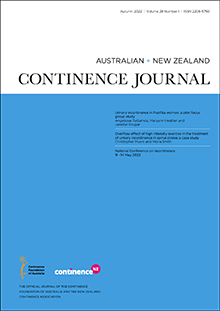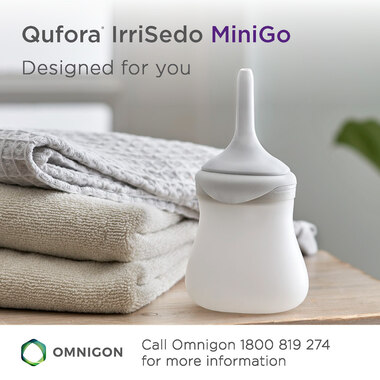This study aim was to evaluate women’s experiences of a biopsychosocial approach to incontinence and pelvic organ prolapse care through an integrated clinic with a general practitioner and physiotherapist providing care. A prospective observational study was undertaken with 36 women, prior to treatment and upon discharge from the clinic, using the International Consultation on Incontinence Questionnaires, Female Lower Urinary Tract Symptoms and
Vaginal Symptoms. Qualitative interviews were also undertaken with 20 of the 36 study participants. Participants reported significant reduction in biological symptoms, including nocturia, urgency, frequency, urge incontinence, frequency of incontinence, and vaginal symptoms of dragging and soreness (p<0.05). Index scores for vaginal symptoms, filling and incontinence decreased significantly (p<0.05). Interviews revealed that participants also experienced improvements in related conditions, including constipation and pelvic pain. Psychosocial improvements included significant decrease in bother associated with urinary and vaginal symptoms, and fewer negative effects of symptoms on relationships, sex life and quality of life (p<0.05). During interviews, participants reported improved confidence and sense of control, and better sexual and social relationships. This study concludes that an integrated general practitioner/physiotherapy clinic taking a biopsychosocial approach to healthcare can significantly reduce physical symptoms and improve psychological and social dimensions of health for women with POP and incontinence.





